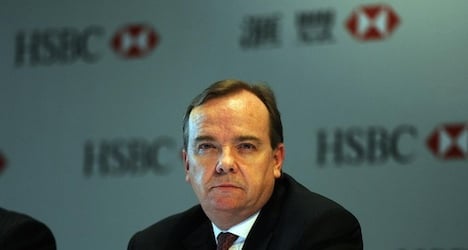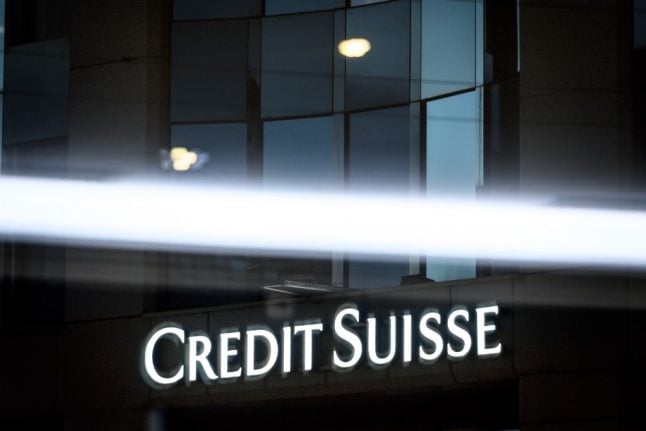Chief executive Stuart Gulliver was forced to react to a report about his finances in The Guardian newspaper, which has led coverage in Britain of an international tax-dodging scandal at the bank's Swiss division.
"I pay full UK tax on my entire worldwide earnings," Gulliver told reporters in a conference call, adding that the report about his account had not "in any way" impacted his leadership of the London-based bank.
He also admitted, however, that some of the practices of HSBC's Swiss private banking arm in the past had been "a source of shame and reputational damage" and said he considered them "very unacceptable".
The report on Gulliver came after claims that HSBC helped clients from around the world dodge taxes on accounts containing $204 billion, which are being investigated in several countries and have caused a political storm in Britain.
The scandal has tarnished the reputation of HSBC, which was quick to react to the latest allegations.
HSBC's chairman Douglas Flint said there was "absolutely nothing that Stuart has done that is other than transparent, legal and appropriate".
The bank explained in a statement emailed to AFP that Gulliver had opened his account in 1998 when he was working in Hong Kong and had put it in the name of a Panamanian company "for reasons of confidentiality".
It said Gulliver, who moved to Britain from Hong Kong in 2003, had "voluntarily declared his Swiss account to UK tax authorities for a number of years".
The bank apologized again on Monday over the so-called "SwissLeaks" allegations, saying they served as a reminder "of how much there still is to do and how far society's expectations have changed in terms of banks' responsibilities."
HSBC also revealed on Monday that 2014 earnings plunged in a "challenging year" that was blighted by fines and compensation for mis-selling.
Earnings after taxation or net profits sank 15 percent to $13.7 billion last year, HSBC said in a separate results statement.
That compared with $18.7 billion in 2013 when its performance was also boosted by disposals.
Pre-tax profits tumbled 17 percent to $18.7 billion, which dashed expectations and sent HSBC's share price sliding almost six percent in London.
"2014 was a challenging year in which we continued to work hard to improve business performance while managing the impact of a higher operating cost base," Gulliver said in the earnings release.
"Profits disappointed, although a tough fourth quarter masked some of the progress made over the preceding three quarters," he added.
"Many of the challenging aspects of the fourth quarter results were common to the industry as a whole."
In early afternoon deals, HSBC's share price dropped 5.75 percent to 570.40
pence on London's benchmark FTSE 100 index of top companies, which was 0.34
percent lower at 6,891.60 points.
TAX EVASION
HSBC boss backs Swiss account as profits slip
HSBC's boss on Monday fended off criticism about receiving his bonuses through a Swiss bank account held by a Panamanian-registered company, as the banking giant reported a 15-percent drop in annual net profits.
Published: 23 February 2015 16:03 CET

HSBC chief executive Stuart Gulliver. Photo: AFP
Url copied to clipboard!


 Please whitelist us to continue reading.
Please whitelist us to continue reading.
Member comments